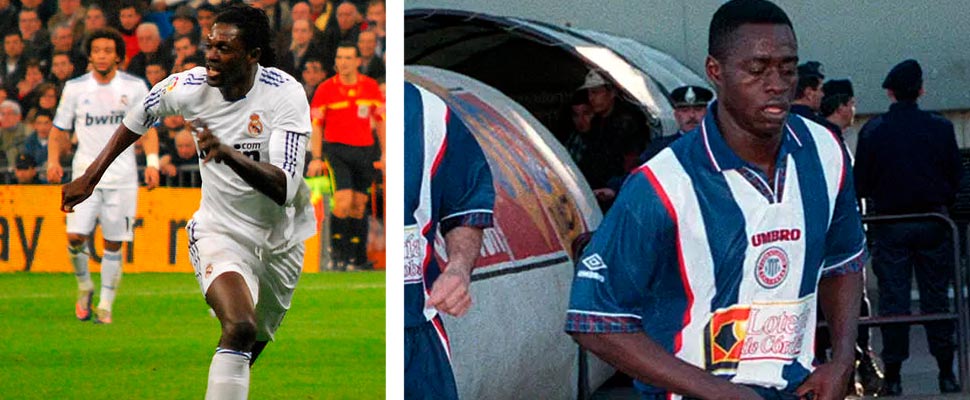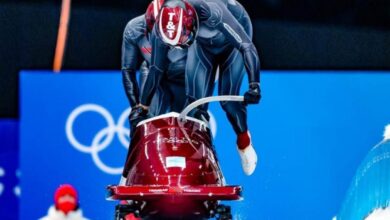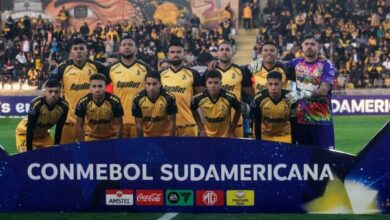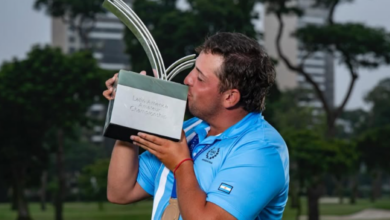African soccer players who have played the Copa Libertadores
Two new names have been added to the list for this 2021 edition.

These are some players born in Africa who made their debut in the Copa Libertadores. Photos: Flickr-Jan S0L0, ToniCruz
LatinAmerican Post | Theoscar Mogollón González
Listen to this article
Leer en español: Futbolistas africanos que han jugado la Copa Libertadores
In the first instance, it may sound quite strange that South American clubs have to go to another continent to look for players, because we all know that the hotbed of world soccer is here . However, the fact that Africans decide to venture to these lands is something worthy of admiration, being a very rare and uncommon practice, but still latent. Certainly, it is the European clubs who most "exploit" this market considered one of the cheapest -in the soccer market-, a vision that, of course, we do not have.
The list of names is longer than many think. In fact, in Argentina there must be at least a dozen African players who are remembered more for their sympathy than for what they have done on the pitch.
The first arrivals
You have to travel to 1980, when Peñarol brought forward John Yawson to his ranks. The Ghanaian-born was the first African to play the most prestigious club tournament on our continent , but he did so in 1981, when the black-and-yellow team faced Bella Vista at the Centenario Stadium. They had a notable participation in that edition where they reached the semifinals, losing to Cobreloa. Many Uruguayans still remember that fast and quite light player who opened the doors to his countrymen.
The second on the list is Adriano Tomás Custódio Mendes, born in Cape Verde and who arrived in Argentina as a child. In fact, he trained in the formative categories of Estudiantes de La Plata and made his debut in the 1984 Libertadores against Independiente de Avellaneda, champion of that year. After some steps in Bolivian Soccer, he had minutes in the cup again but with the colors of Cerro Porteño in 1988.
90's fashion
From this decade on, the number of players from Africa began to grow exponentially. By 1993, the third to join would be another Ghanaian : Ibrahim Salisu . This very fast forward contributed many goals to Caracas FC, even in Libertadores where he scored 8, converting that last to River Plate in 96. For his part, Cyrille Makanaky was the first Cameroonian to enter the history of the tournament when he played with the Barcelona SC of Ecuador in 1996, an edition that saw this interesting midfielder until the quarterfinals.
Precisely, that same nationality repeated with Tobie Mimboe in Cerro Porteño (1996), who did not have much prominence. In addition to goalkeeper Thomas N'kono, who played with Bolívar at the age of 40 in the 1997 edition and standing out for his team to reach the quarterfinals where he was eliminated by Sporting Cristal. And look, we talked about a lot of coincidence in that game, since on the sidewalk in front was the Ghanaian Prince Amoako, one of the culprits that the Peruvian team played in the final of that year . The African, the only one to reach those instances so far, only played 56 minutes in the second leg.
Also read: This is how the 5 best teams of the decade according to the IFFHS are going
The list continued with other names, some more decisive in the game than others. Cameroonian Geremi Njitap also participated in 97 defending Cerro Porteño . His compatriot Oyié Flavié did the same with Atlético Bucaramanga of Colombia a year later. While Nacional de Uruguay opted for soccer players also from that country: attacker Pierre Webó in 2002 and defender Benoît Angbwa for 2003 .
This does not end here
It took several years to see more cases. In 2015, Cruzeiro had Cameroonian Joel Tagueu in their ranks, who saw action during five games. The forward repeated his participation, although only on two occasions, with Botafogo in the 2017 edition. In that same year, he saw a double debut in the cup, the Ivorian Hervé Kambou with Zulia FC, a Venezuelan team that counted to a large extent with the defender in all six of his group stage matches.
In 2020, the focus of attention was taken by Olimpia from Paraguay, who dared to sign an icon of African soccer: Emmanuel Adebayor. The Togo-born, however, could only play four games with his team, two of them for the Libertadores. In turn, Caracas FC repeated its old formula and signed Ghanaian Kwaku Bonsu-Osei , who made his debut against Boca Juniors that same year. But the Venezuelan club wanted to go further and for this 2021 it gave that confidence to other young players: the Nigerian Ade Oguns and the Nigerian-Beninese Samson Akinyoola . Even not long ago, these last three shared the field to enter the history of the Copa Libertadores.




